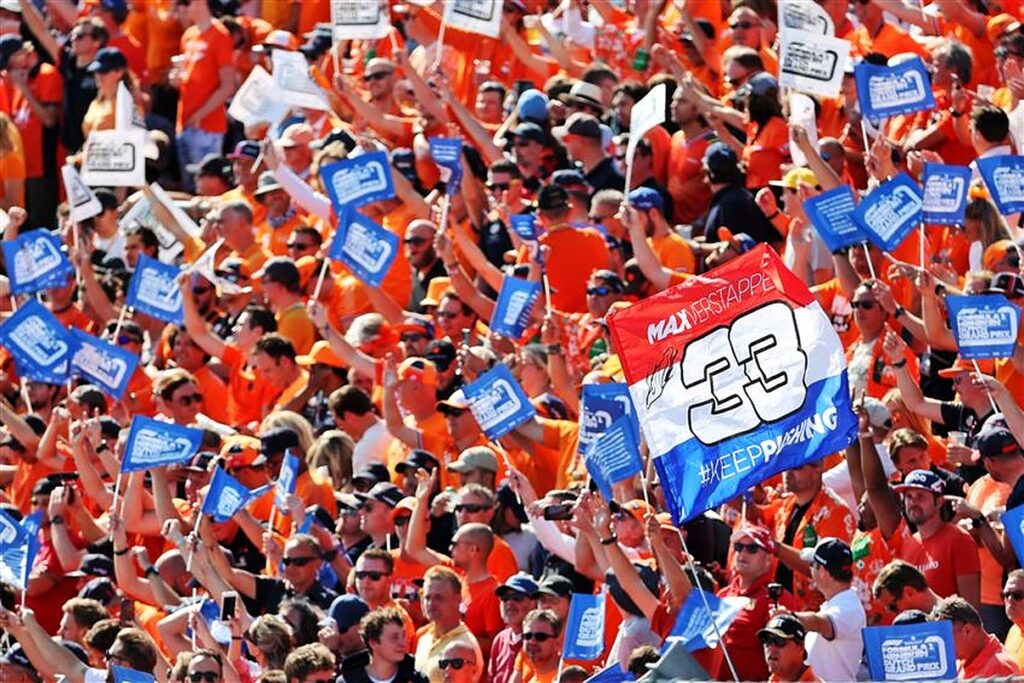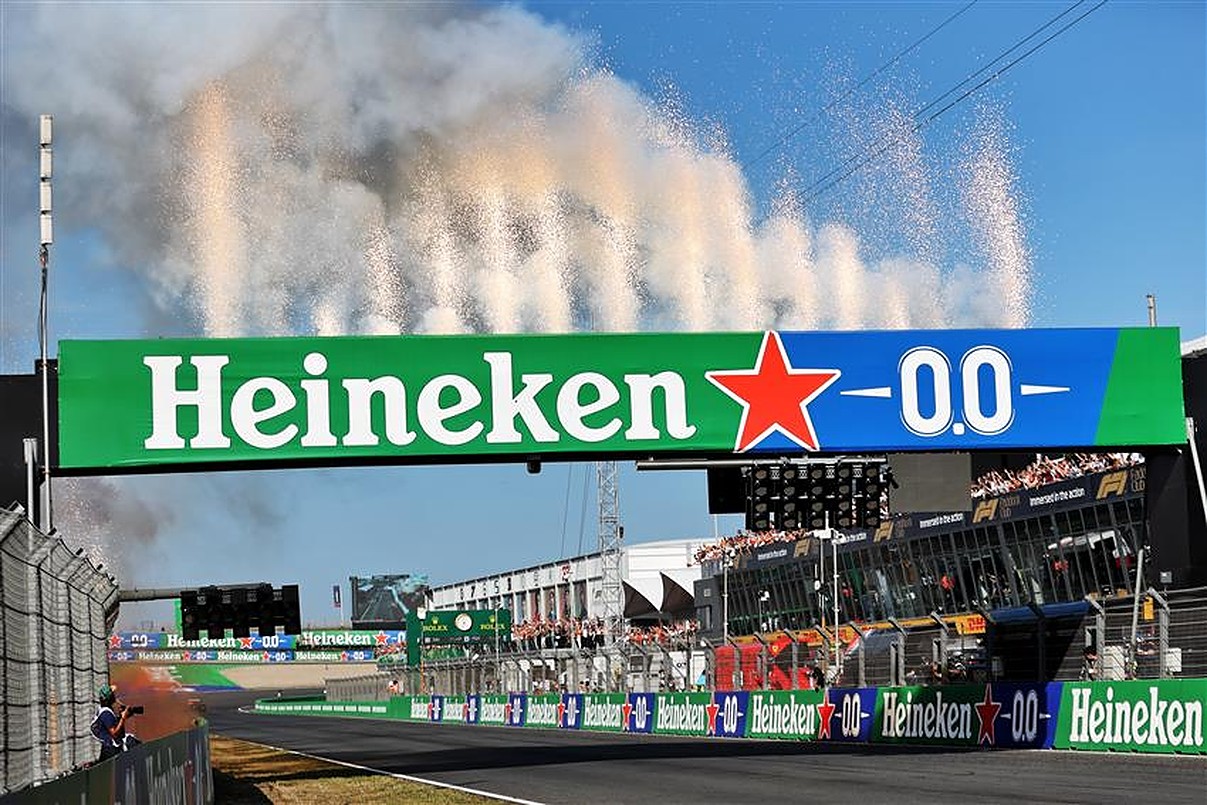A Dutch environmentalist group is calling for the Formula 1 race at Zandvoort to be scrapped due to concerns over climate change.
Zandvoort has hosted 29 Formula 1 grand prix in its history, and the circuit returned to the pinnacle of motorsport last year following a 36-year absence from the calendar.
It saw a return to the banked corners and dusty run-off that has become synonymous with the adored venue, and the weekend in 2021 featured exuberant beach parties sandwiched in between on-track running.
Mobilisation for the Environment – a Dutch environmentalist group – has warned that the racing at the Zandvoort circuit is damaging the sand dunes that the circuit is named after.
Former Formula 1 driver Jan Lammers is the sporting director of the Dutch Grand Prix in the north west of the Netherlands, and he estimates that F1 accounts for just one percent of the emissions produced by the event, comparing its impact to a “football match.”
However, the group are reported to believe that the figures around climate change are not quite what Zandvoort’s race organisers are claiming.
As a result, the group has filed a lawsuit arguing that Zandvoort should have its race host license revoked.
READ: ‘Stupid’ Abu Dhabi GP ending will cost Formula 1 viewers
Valentijn Wosten, a legal advisor, warns that any ambiguity over the ecological impact of the grand prix and race weekend should see the 2022 race in the Netherlands removed from the calendar.
“The legal requirement for permits is that there should be no uncertainty about possible harmful consequences for the protected ecology,” he said in an interview with f1maximaal.nl.
“With the report, it is established there is no such certainty. Then the judge can only go one way – annul the permit decision.

“As a follow-up to this, politicians will have to conduct a serious debate about the enforceability of a mass event location in the middle of vulnerable dunes,” he added.
Wosten is bemused as to why talks about the impact the Dutch Grand Prix has on the dunes has taken this long to take place.
“The debate about moving to a less vulnerable location should have been held much earlier. Leaving uncertainty about the future of the circuit at this location is not good for anyone,” he stated.
Lammers insists that the group is merely attempting to gain attention from the Dutch Grand Prix’s name, and said he intends to defend Zandvoort’s right to host a race.
READ: Mercedes announce release date for 2022 car
“We naturally generate a lot of media attention with our GP, and this creates an opportunity for the environment and nature organisations that they can use,” he said.
“That is their right, and it is now up to us to defend in this case through the court that we are within our rights. We can do that, but it’s not up to us to judge that – the judge will ultimately have to do that.”
The 1988 24 hours of Le Mans winner has pledged to defend the circuit’s right to host the 2022 Dutch Grand Prix.
“Of course, we do our very best to do our homework and make sure the facts are correct,” he added.
“We are not trying to tell a story to anyone with a mirror and beads, we are just trying to show through careful work that things fit the bill.
“In any case, we have become a lot stronger because of all the trials we have gone through.”
Asked about the possible harm the Dutch Grand Prix is doing to the sand dunes, Lammers stresses that F1 cars give off far less emissions than they used to during his 23 race starts between 1979 and 1992.
“Look, when I was in F1 we had a tank of 200 litres of petrol and we did a grand prix with that,” he stated.
“Then we had just over 500 horsepower. They are now doing a GP with 136 litres and with 1,000hp, so a lot has already happened in that area. An F1 car consumes every drop of energy.”
READ: Ex-F1 driver denies Masi tried to sabotage Hamilton but criticises ‘rushed’ decision
The Dutchman therefore reinforces the point that the race, given the sport’s continued push for net zero emissions, scarcely affects the ecology of the area.
“Now I don’t want to suggest warm air comes out of the exhaust, but that fuel is used to the maximum so the emissions are also minimal.
“That said, the GP itself accounts for 1% of the total event’s emissions. In that respect, it’s not that much of a difference to a football match.”
Formula 1 adopted its current 1.6-litre turbo-hybrid engines in 2014, and has laid out a target of transforming F1 into a carbon-neutral sport by 2030.
Max Verstappen won last year’s Dutch Grand Prix in North Holland, securing the seventh of his 10 race victories en route to his maiden world championship.
Follow us on Google News to never miss an F1 story

